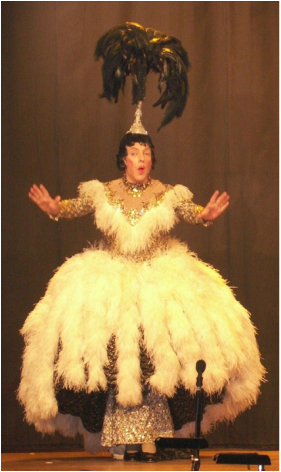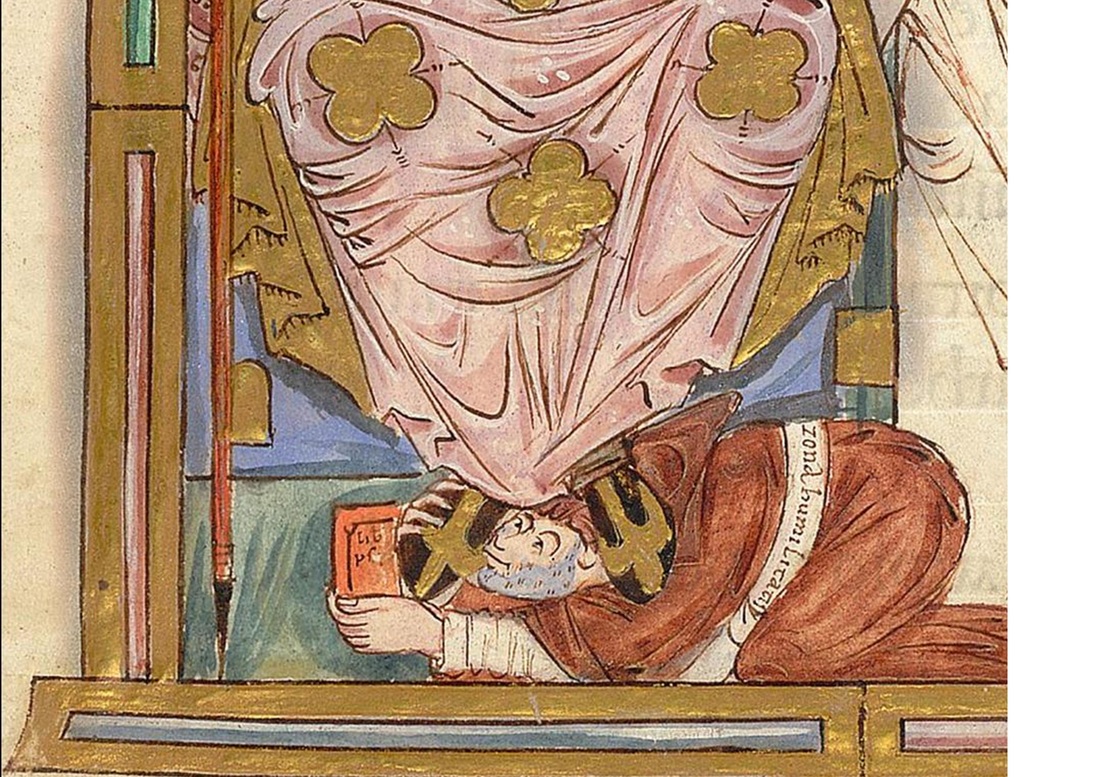|
A good monk, blessed readers, should know his canon law. Canon law? This is the law of the Church as opposed to civil law (specifically, the law of the king in my eleventh-century world). Canons, or rules, have been laid down for centuries by ecclesiastical councils, the first of which was the Council of Nicaea in 325, and since then numerous collections of canon laws have been compiled. Well, makes a change from stamp collecting. Today I'm going to relate a few highlights from the personal canon law collection of Wulfstan, archbishop of York between 1002 and 1016. The manuscripts which preserve this collection actually have annotations and additions written in Wulfstan's own handwriting. Well I never! Since as an archbishop he would have had numerous aides, including a magister scriptorii (master of the scriptorium) and a few lowly scribes thrown in for good measure, his personal attention to this collection shows it was something close to his heart. But, then, Wulfstan was fond of a good law, even being directly involved with the writing of civil laws for kings Æthelred (of un-readiness fame) and Cnut. He was nothing if not authoritative. Now, beloved, I'm not simply writing all this for my own amusement, but rather because your interests are always at the centre of my world, plain as it is, and therefore I thought you would all benefit from knowing about one or two things that none of us should be getting up to according to Wulfstan's canon laws. Of course, it should come as no surprise that some of these canons are of the you shall not do kind. Well, that is what ecclesiasts are there for, to keep you on the straight and narrow. But there are some you shall do canons, too, as you will see, though it has to be admitted that these mostly amount to a bit of positive spin. Regardless, I beseech you all, my blessed readers, to pay attention as I itemise five of my favourite rules, for your very soul may be at stake: Exorcists are to lay their hands on the possessed each day. – A canon of Carthage (no. 53, Recension A)
Here's one of those positive types of canons, and something every exorcist out there should know by heart. Clearly a hard-working and conscientious fellow, the exorcist, it would seem, should go in search of a demon-possessed person on a daily basis. Let's just hope possession is always obvious, otherwise if you're having one of those strange mornings where you're looking a bit glazed in the eyes and seemingly gawping at your fellow passengers on the bus, then you might just feel the grip of the exorcist on your shoulder. It might make for an interesting day, though. It is proper, however, that small children, offered with the willing agreement of their parents, or preferably by the parents themselves, should be received before many witnesses. – Of Bishop Basil (no. 64, Recension A) Whoever has been sent into a monastery by his own parents will know that he must remain there for ever. – Isidore (no. 65, Recension A) Two for the price of one, as they say. Yes, I thought I'd better make sure the first canon was made clear by the second. I musts admit, blessed ones, that no one read these canons out to me when I arrived as a seven-year-old lad at my current abode! I'll never forget the look on the abbot's face (may his soul rest in peace with the Lord): something between despair and resignation, I would say. It would have been nice to have said a proper goodbye to mum and dad, but at least my uncle reassured me that they were both very willing in gifting me to the service of the Lord. A cleric ought not to put on a monk's habit or use laymen's clothes. And a man, if he wears women's garments, is to be excommunicated; or a woman, if she wears male clothing, is to be excommunicated. – Ælfric (no. 76, Recension A) The first part of this is obvious: we don't want those priests and deacons running around outside wearing our garb; we monks are nothing if not distinctive. And of course clerics need to look different from the laity; I'm rather surprised it needed to be said, but I guess it's always important, beloved, to hammer home the details. The second part of this canon is a little more perturbing, wouldn't you agree? Not for me personally, I hasten to add, but for all you twenty-first century folk in England with your penchant for pantomime dames and cross-dressing Prince Charmings. I was astonished last Christmas when I was informed that Cinderella's step sisters had something extra under their gowns (the words of my confidant, not my own choice). And really, now, I feel I should go and warn them that their souls are in danger. His wife being dead, a man is permitted to take another after a month; a woman is permitted to take another husband after a year. – Theodore (no. 87, Recension A) Well, what to say about this one? Are men more in need, shall we say? Or is it that women are more likely to change their minds so we should allow them enough time to do so several times? Well, if only everyone could devote themselves to the religious life, like me and my three sisters. Yes, my parents were very generous donors to the Church. As we're on the subject of marriage, my final choice relates to you young people out there who are in a state of betrothal. Now please pay attention: The bridegroom and bride, when they are to be blessed by the priest, are to be brought forward by their parents or by the bridal attendants; and when they have received the blessing, that same night, they are to remain in the state of virginity, out of respect for that blessing. – A canon of Cathage (no. 59, Recension A) I hear such salacious gossip about twenty-first century folk that I suspect I may be wasting my breath here in reiterating this canon. If you do feel that in your own case the latter part of this rule is, how shall I put it, a case of closing the stable door after the horse has bolted, well perhaps you might find some way of carrying this out symbolically: I don't know, maybe not eating any wedding cake until the following morning? I despair, beloved, I despair. Well, kind readers, if you enjoyed my little foray into canon law, you will be delighted to learn that I plan to revisit the topic in future posts. I have to stretch things out a bit, you know – it's not easy being a Benedictine blogger! Quotations from the canons are taken from Wulfstan's Canon Law Collection, ed. J. E. Cross and Andrew Hamer (D. S/. Brewer, 1999).
0 Comments
Your comment will be posted after it is approved.
Leave a Reply. |
Details
|



